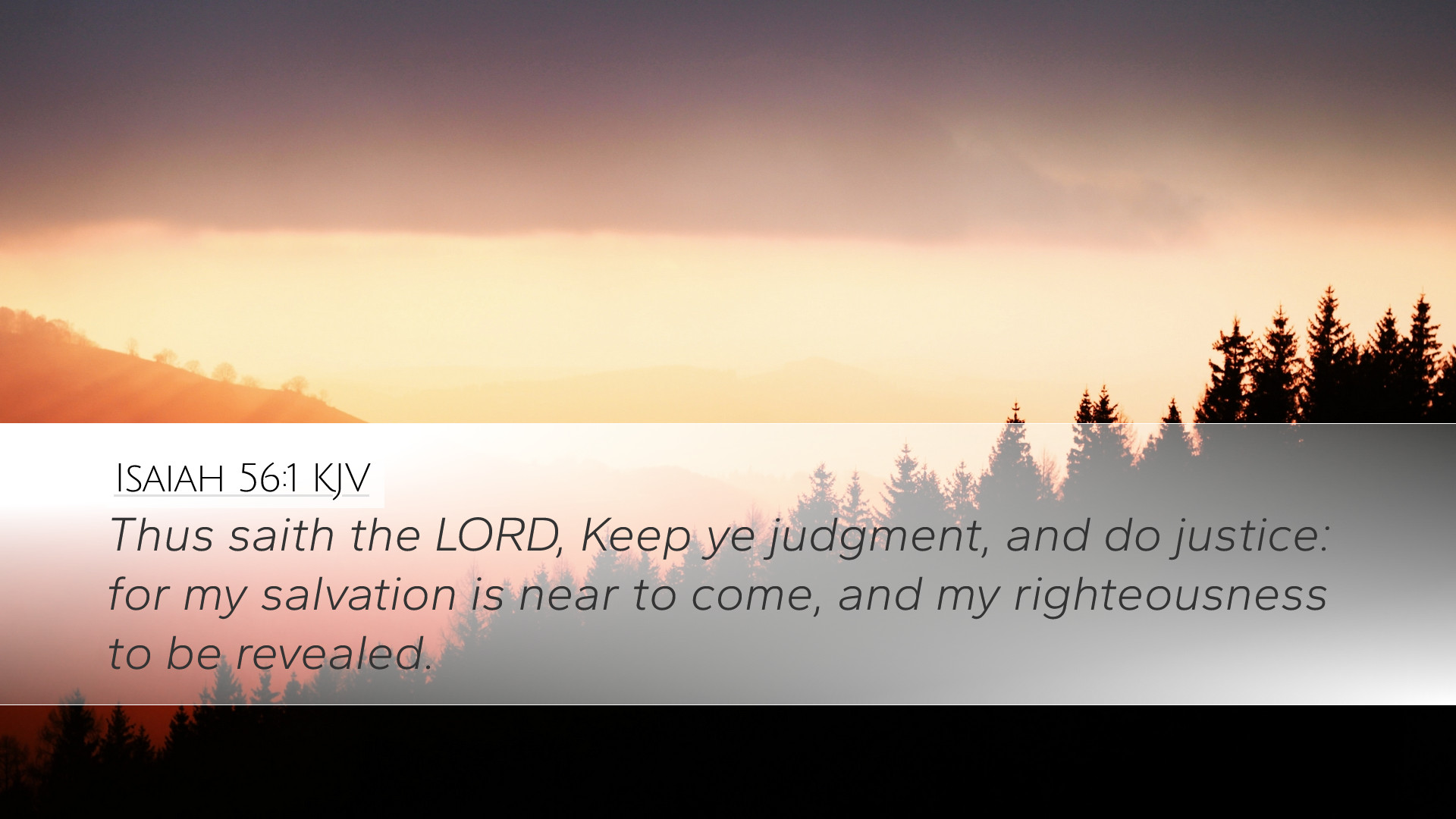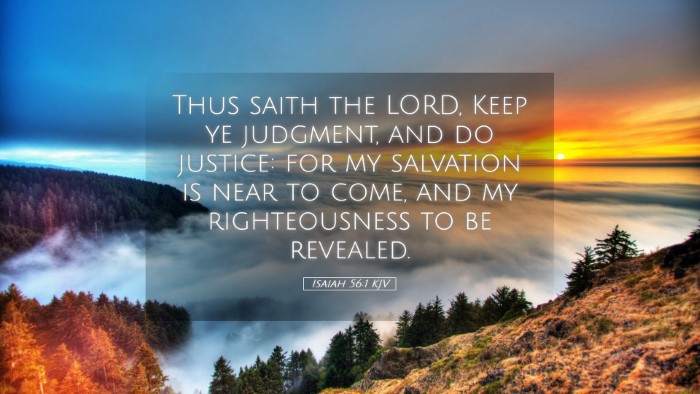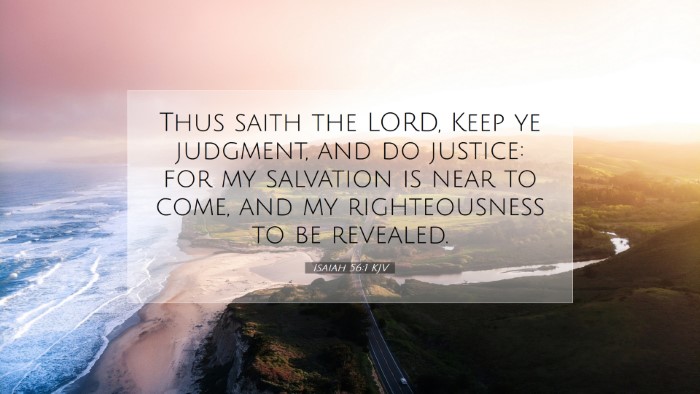Commentary on Isaiah 56:1
Text: "Thus saith the LORD, Keep ye judgment, and do justice: for my salvation is near to come, and my righteousness to be revealed."
Introduction
Isaiah 56:1 is a profound verse that encapsulates God's call for justice and righteousness as precursor to the revelation of His salvation.
This verse transitions from the previous chapters discussing judgment on Israel to a promise of hope and restoration, emphasizing that the Lord’s concern extends to all nations, highlighting inclusivity in His salvation plan.
Understanding the Call to Justice
The verse begins with a divine imperative: "Keep ye judgment, and do justice." This call to action is not merely for Israel but serves as a universal imperative for all who seek to follow God.
Matthew Henry, in his commentary, notes that this exhortation encompasses both the social and moral dimensions of justice.
He emphasizes that true judgment goes beyond mere legalism; it involves integrity, fairness, and compassion, reflecting God's character.
-
Judgment defined: According to Henry, judgment entails discernment and the application of God’s moral law in daily living.
-
The call to do justice: Adam Clarke elaborates that justice involves maintaining fairness and equity in human relationships, thus serving the community at large.
The Nearness of Salvation
The latter part of the verse states, "for my salvation is near to come, and my righteousness to be revealed."
This statement carries profound theological significance. Albert Barnes points out that the phrase indicates the immediacy of God's redemptive work.
The salvation mentioned here is not just a future hope but is already at hand, highlighting God's active role in the restoration of humanity.
-
Salvation as a present reality: Barnes asserts that the "salvation" referred to can be understood as both spiritual and political restoration, heralding the arrival of the coming Messiah.
-
Righteousness revealed: Clarke emphasizes that the righteousness of God is manifest in His dealings with humanity and signifies God’s fidelity to His covenant promises.
Theological Implications
The urgency of justice and judgment highlighted in Isaiah 56:1 reflects a profound moral and ethical system that governs the human experience.
Henry stresses that the divine expectation to uphold justice is linked to the anticipation of salvation.
This perception weaves a tapestry of hope: as believers act justly, they bear witness to the forthcoming righteousness of God, which finds its culmination in Christ.
Conclusion
Isaiah 56:1 serves as an enduring reminder to pastors, scholars, and students of the importance of judging rightly and acting justly as preparation for the coming of God’s salvation.
The urgency of maintaining justice and righteousness is crucial not only for individual believers but also for the community as a whole.
These exhortations resonate with the New Testament echoes of righteousness and justice, culminating in the person and work of Jesus Christ.
This prophetic message compels the faithful to reflect God's righteousness in a world that increasingly strays from just principles.


